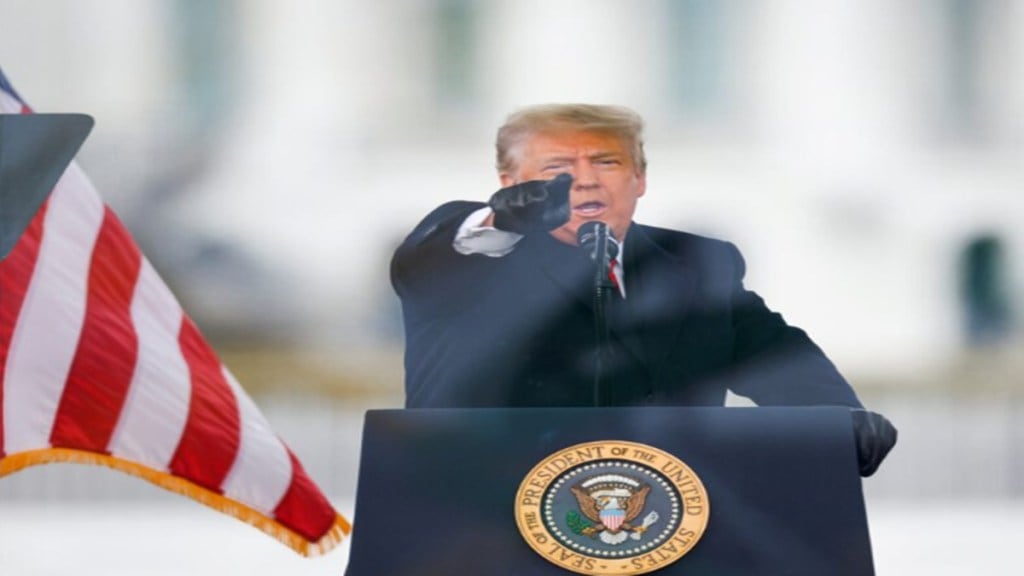The Trump administration is now aggressively working to reduce legal immigration into the US, having already made major changes to immigration regulations.
US officials are tightening their rules on foreign workers and students pursuing valid work permits, like H-1B visas.
The United States has also increased the cost of US visas to limit inflows into the nation and reduce trip overstays.
Here are some measures the Trump administration has taken or is considering implementing to make legal immigration more challenging for foreigners.
H-1B Visa
Trump administration wants more jobs for American workers and restricts U.S. firms from hiring foreign workers. A new wage-based selection process for H-1B visas has been proposed and is likely to be implemented soon.
The New Wage-Based System plans to establish a wage-based allocation process and choose H-1B candidates based on their earnings; the higher the compensation paid by the US firm, the better the chances of obtaining an H-1B visa.
The legal route for foreign workers to pursue the American dream could soon become much stricter.
Green Cards
US green card holders enjoy legal rights to live, stay and work in America as lawful permanent residents. However, the Trump administration has been taking measures to ensure green card holders are kept in check.
The US government is actively working to strip some Americans of their citizenship. The revocation of US citizenship status is currently a priority for the US Department of Justice.
Secretary of State Marco Rubio has often stated that no one is automatically eligible for a green card and that the government will revoke a person’s green card if they engage in illegal activities while in the nation.
The US Department of Justice has asked enforcement authorities to prioritize the revocation of US citizenship and denaturalization of green card holders who have become American citizens in certain cases. Under-reporting income on a tax return is one such instance that could result in being declared a non-US citizen.
The US has announced that lawful permanent residents or green card holders will have to undergo ‘neighbourhood investigations’ before being given American citizenship through the process of naturalization. The ‘Neighbourhood Investigation’ will include testimonial letters from neighbours, employers, co-workers, and business associates.
Spouses of US citizens and green card holders are now facing tougher scrutiny during green card interviews. Both adjustment-of-status interviews within the United States and consular interviews for spouses living abroad are increasingly vetted for more in-depth questioning, according to immigration lawyers.
Dropbox Facility
Getting US Visa has been made all the more difficult and time-consuming. The US interview waiver policy, also known as ‘Dropbox,’ has ended for the majority of US travelers.
The interview waiver benefit has been removed for children under the age of 14 and adults over the age of 79. Foreign students on F-1 visas and employees on H-1B specialist occupation visas or L-1 visas for intracompany transfers are required to appear in person for interviews at consulates starting September 2.
Foreign Students
The Trump administration’s crackdown on foreign students has been severe, with F-1 study permits revoked, SEVIS status terminated, and deportations made in the past.
Now, US authorities have proposed to amend their regulations by changing the admission period of F, J, and I aliens from ‘duration of status’ to an admission for a ‘fixed time period’. This new rule proposed by US authorities will force non-immigrants such as students holding an F-1 study visa to depart the country after a fixed period.
Vetting of student visa applications has become much stricter than before. All students applying for an F, M, or J nonimmigrant visa have been asked to adjust the privacy settings on all of their social media accounts to public to facilitate vetting necessary to establish their identity and admissibility to the United States under U.S. law.
The heat is also on the non-immigrant visas applied for by foreigners to visit America as a tourist or for business purposes. Several cases of rejection have come to light where parents have been denied B1/B2 visas merely because their son shifted to another US university.
US has rejected a record number of international student visas as denial rates soar. US student visa denials reached a ten-year high in the past fiscal year, with 41% of applications denied, nearly double the 2014 rejection rate.
Optional Practical Training
Optional Practical Training program is one of the many reasons why foreign students choose the US as a study destination. The Trump administration is threatening to end Optional Practical Training (OPT), which allows international students to stay in the country for up to three years after graduation and work in US companies.
Jessica Vaughan, a policy specialist, submitted a report to Congress urging harsher immigration policies, including possible elimination or stricter control of OPT, as they were never officially approved by Congress.
Also, US lawmakers have introduced a bill in Congress titled ‘Fairness for High-Skilled Americans Act of 2025’ to end the Optional Practical Training Program. The Optional Practical Training Program, administered by the US Citizenship and Immigration Service, is set to be terminated if passed by Congress.
Travel Warnings
Traveling to the United States will now be substantially more expensive, as the country has introduced two new visa fees, which could be enforced soon. In addition to the visa processing fee for U.S. visas, nonimmigrants will soon be required to pay two additional fees: the Visa Integrity Fee and the fee for Form I-94 Arrival/Departure Record.
US immigration authorities have issued a warning to Indian nationals, including H-1B workers, international students, and Green Card holders, against traveling outside the country. US officials are targeting elderly Indian Green Card holders who spend time in India, following previous orders to force them to voluntarily give up residency at American airports.
US has also introduced certain new immigration fees and increased existing fees for certain immigration-related actions of foreign travelers and immigrants, which would go into effect on September 30, 2025, and apply to fiscal year (FY) 2025.

